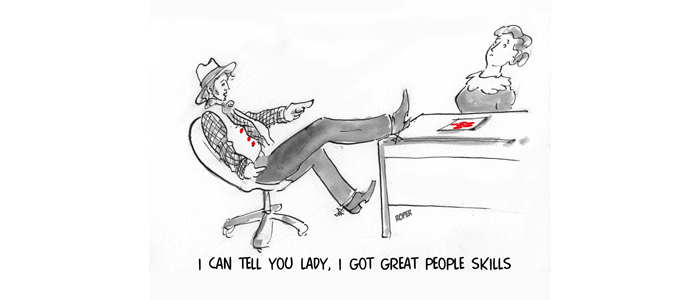Do you have a tendency to fall back on professional skills – whether that’s data collection, analysis, re-engineering – to manage your growing organisation? Kate Mercer explains that instead you’ll need a whole new range of more ambiguous and flexible skills to manage attitudes, values and beliefs, and to engage and motivate staff.
I wrote recently about the addiction to over-engineering that can come over the most sensible of SME leaders as the company’s growth really gets under way. I focused in that article on the belief that recruiting a person with large-company experience will be the right answer for your growing SME. Very often it isn’t.
In the same way, we often encounter an almost mystical belief that various systems and processes will magically resolve the growing SME’s administrative and management problems.
Now it is certainly true that growing out of the first-generation ‘start-up’ phase of a business frequently causes a breakdown in tried and tested processes that have served you well so far. In the first-generation phase, these are often invented and run by the individuals who work in the company in its earliest stages – in fact, in extreme cases, they only exist in people’s brains. This is all very well until a person leaves, or goes on holiday, or breaks a leg, when suddenly the need to have something more formal becomes apparent.
This is the point at which many business leaders fall in love with the idea of a commercially available system. They do their research or chat to various vendors, and are won over by the claims of perfect order, technical whizzery and an easier life for everyone. They spend an enormous amount of money and call in the experts to install the system. What could go wrong?
Take the example of a law firm, growing rapidly by the acquisition of many smaller law firms. Invoicing has traditionally been done in most of these small first-generation firms by the senior partner manually raising an invoice on the day a client project finishes, based on simple timesheets completed by admin staff and other professionals involved in the project. The client gets their bill while the project is still fresh in their mind, and the law firm gets its money a month or so later.
In the shiny new second-generation organisation, someone has looked at the invoicing process and thought, “we’re a big law firm now – we should have a big, fully-automated system”. They centralise the finance function and require everybody to put in requests for invoices to be raised via the new centralised system. Not only have there been a number of teething problems (as there always are with new systems), but the whole process now takes up to four weeks or more. Clients receive their invoice (if at all) a month or so after the project has ended, when it’s no longer fresh in their mind. Mistakes have multiplied, and even where the invoice is correct, the incidence of queries and complaints from clients has rocketed. The new system has slowed down cash flow to the point where it’s causing problems for the whole business.
What has happened?
The main problem is the assumption that a larger organisation necessarily needs a more complex and sophisticated system. Actually, the larger organisation is still at best only a second-generation SME, not a third-generation ‘corporation’. In fact, in many ways it’s still a loose association of many small first-generation companies, and the simple, flexible, responsive systems they’ve always used will probably still work – or at most need a few tweaks.
What works best at this stage of a company’s growth is simple home-grown processes, captured and recorded by the people who know the job best. Maybe that all that needs to happen is to take the process out of someone’s head and capture it in a checklist, a spreadsheet or a manual. In fact, doing this should always be the first step you take before specifying a more complex and expensive system anyway – only when everyone involved has captured and refined what actually works, should you even consider purchasing an off-the-peg, or bespoke, solution.
This may be bad news if you are the kind of person who is itching to buy the latest programs and apps, or if you believe that getting just the right system will solve all your problems. And it’s not necessarily easy to capture best practice and record your own processes. However, if you and your team take the time and put in the effort, you will end up with something that does the job and costs you a fraction of the money, as well as ending up with a team of people who all understand inside out and back to front how your company systems work. And when the right time comes, a few years down the line, for you to invest in the ‘big-company’ solutions, you’ll be able to write the specification and make the right choice first time.
